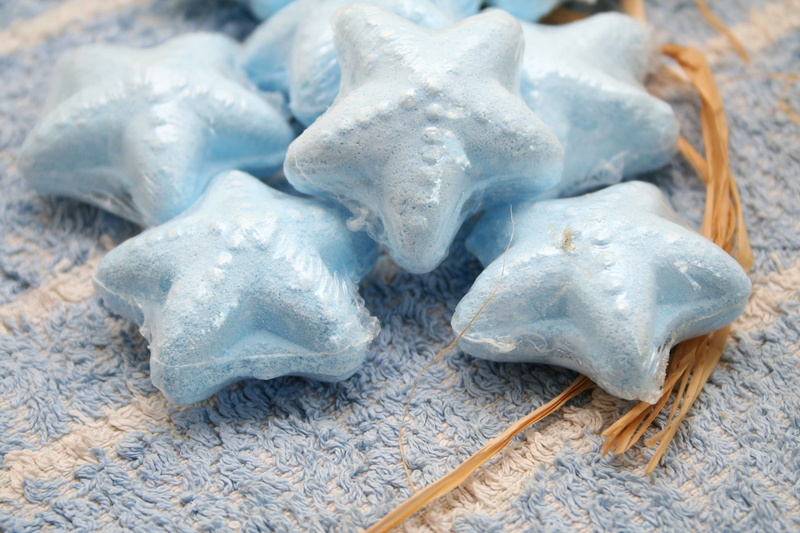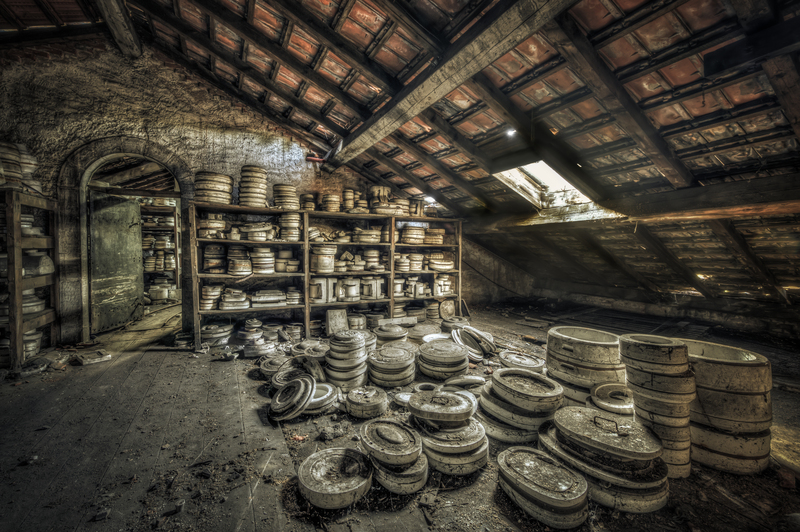An Expert's Guide to Removing Damp Odor
Posted on 02/10/2025
An Expert's Guide to Removing Damp Odor
Unpleasant, musty smells can take over your living space, filling your home with a lingering damp odor that's hard to ignore. Whether it creeps from your basement, bathroom, or even inside your wardrobe, the smell of damp can make your entire home feel unclean and unhealthy. Of all household odors, damp and musty smells are among the most common, persistent, and unwelcome. This comprehensive guide is designed to help you eliminate damp odor effectively, covering not only remedies but also prevention and expert advice for lasting freshness.
What Causes Damp Odor?
Understanding the root cause is essential for permanently removing musty odor. Typically, damp odors are caused by excess moisture in the air, which creates an ideal environment for mold, mildew, and bacteria to thrive. When these organisms break down organic materials, they release volatile compounds responsible for the unpleasant smell we recognize as "damp."
Main Culprits Behind Damp and Musty Smells
- Leaking pipes or plumbing failures
- Poor ventilation in enclosed spaces
- Condensation on cold walls or windows
- Flooding or past water incidents
- Wet clothing/fabrics left to dry indoors
- Damp crawlspaces or basements
To effectively get rid of damp smell, it's crucial to address the underlying sources of moisture first before tackling the odor itself.

Steps to Permanently Remove Damp Odor
As any expert will tell you, a systematic approach is vital for eliminating damp odor for good. Below, you'll find a step-by-step process, including practical tips and natural solutions that are proven to work.
1. Identify and Fix the Moisture Source
- Inspect the Area Thoroughly: Use your nose--and a flashlight--to track where the musty odor is strongest. Look for visible mold growth, stains, leaks, or condensation.
- Repair Leaks and Seals: Fix leaking pipes, windows, or roofs. Replace cracked caulking and ensure proper insulation.
- Improve Drainage: Ensure that gutters, downspouts, and exterior drainage are all directing water away from your foundation.
2. Improve Ventilation and Airflow
- Open Windows and Doors: Regularly airing out rooms is a simple yet effective way to remove damp smell quickly.
- Install Vents or Exhaust Fans: Especially in kitchens, bathrooms, and laundry areas. This reduces humidity and restricts mold growth.
- Use Dehumidifiers: These devices actively remove excess moisture, crucial in basements or high-humidity climates.
3. Deep Cleaning Surfaces
Once you've managed the moisture, it's time for a deep clean. Mold, mildew, and bacterial spores can embed in porous surfaces, causing the damp scent to linger even after drying.
- Hard Surfaces: Scrub walls, tiles, and floors using a solution of water, detergent, and a cup of white vinegar. Disinfect high-risk areas using bleach or hydrogen peroxide when safe for the material.
- Carpets and Upholstery: Use a steam cleaner or have them professionally cleaned. Sprinkle baking soda liberally, leave overnight, and vacuum thoroughly to absorb musty odors.
- Wash Fabrics: Any curtains, bedding, or clothing that have absorbed damp odors should be washed in hot water and dried completely in the sun if possible.
4. Remove and Treat Mold
Mold is a primary cause of persistent damp smells. If you spot mold, follow these expert-approved actions:
- Wear protective gear: Use gloves and a mask to avoid inhaling spores.
- Scrub with Vinegar and Baking Soda: Apply undiluted white vinegar on affected surfaces, then scrub with a baking soda paste.
- Dispose of Severely Contaminated Items: Sometimes, pillows, carpets, or insulation must be thrown away if mold has deeply penetrated.
5. Absorb Residual Odors Naturally
Natural odor absorbers can neutralize lingering smells after cleaning. For lasting results:
- Place Bowls of Baking Soda: Leave open bowls of baking soda in problem areas to absorb lingering damp odor.
- Use Charcoal Briquettes: Activated charcoal is a powerful, non-toxic odor remover. Place in breathable containers throughout the room.
- Coffee Grounds: Fresh coffee grounds absorb and mask musty odors--place them in open jars or bowls.
6. Freshen Up with Natural Scents
- Lemon Peels: The acidic properties of lemon also kill bacteria and leave a fresh scent.
- Essential Oils: Lavender, eucalyptus, or tea tree oil not only mask odors but provide mild antimicrobial effects.
- House Plants: Some plants can improve indoor air quality by absorbing airborne toxins.
Preventing the Return of Damp Odor
After you've succeeded in removing damp odor, prevention is key to stopping it from coming back. Here's how to keep your home smelling fresh and clean, year-round.
Monitor Humidity Levels
- Use a Hygrometer: Keep indoor humidity below 60%, or ideally between 30-50% to deter mold growth.
- Use Dehumidifiers and Air Conditioners: These help control moisture, especially in basements or during humid weather.
Keep Water Out
- Insulate Pipes: Prevent condensation and leaks by wrapping pipes in insulation.
- Fix Leaks Promptly: Don't wait to repair drips from plumbing or roofing issues.
- Seal Gaps and Cracks: Waterproof important entry points in your foundation, windows, and exterior walls.
Ensure Proper Airflow
- Don't Block Vents: Maximize air circulation by keeping vents and windows clear of furniture and clutter.
- Use Ceiling Fans: Regular use of fans helps to circulate air and keep your space dry.
Regular Cleaning Routine
- Vacuum and Dust Often: This reduces organic debris which can harbor mold or mildew.
- Launder Linens and Curtains: Wash and sun-dry regularly to prevent that telltale damp smell.
Check Attics and Crawlspaces
- Install Vapor Barriers: These linings in crawlspaces help block ground moisture from seeping in.
- Check for Roof Leaks: Inspect your attic regularly, especially after storms, to catch leaks before they cause musty odors.
Store Items Properly
- Avoid Storing Cardboard Boxes in Basements: Use plastic bins with tight lids.
- Dry Items Before Storage: Never put away clothes or linens that haven't fully dried.
Common Problems & Expert Solutions
Persistent Damp Smell in Basement
- Check for hidden leaks or seepage: Even minor cracks in concrete floors or walls can admit moisture.
- Install a sump pump or French drain: These can help manage groundwater and prevent flooding.
- Use waterproof paint: Sealing walls can help block incoming moisture.
Mold Smell in Wardrobe or Closet
- Use moisture absorbers: Silica gel packets are ideal for small, enclosed spaces.
- Keep doors slightly ajar: Whenever possible, allow air to circulate.
- Install louvered doors: These increase airflow in built-in closets.
Damp Odor in Carpets and Rugs
- Steam clean regularly: A professional clean can sanitize fibers and remove embedded spores.
- Use baking soda generously: For surface-level damp smells, this is a simple, cost-effective fix.

Frequently Asked Questions About Removing Damp Odor
How long does it take to get rid of damp smell?
It depends on the cause and severity. Minor odors can dissipate in a day with cleaning and ventilation, while deeply embedded smells or mold infestations may require up to a week of persistent treatment.
Can I mask damp odor with air fresheners?
Covering up the odor may provide short-term relief, but it's essential to address the source of moisture and mold for a complete solution. Air fresheners or sprays should only be used after the room is clean and dry.
Is damp odor harmful to health?
Persistent dampness and the smell associated with it can indicate fungal or bacterial growth, leading to allergies, asthma, or infections--especially in vulnerable individuals. Always remediate dampness thoroughly for a healthy indoor environment.
What natural remedies are effective for eliminating musty odors?
Baking soda, vinegar, activated charcoal, and essential oils are all safe, natural, and reliable methods for removing musty smells. Regular use can help keep your home fresh.
Conclusion: Enjoy a Fresh, Odor-Free Home
Removing damp odor is not merely about masking musty smells--it's about creating a healthier, more inviting home. By identifying the root causes, repairing moisture issues, deep cleaning, and maintaining good ventilation, you'll reclaim your living space from persistent dampness.
Follow these expert tips for eliminating damp smell and keep your home smelling clean and fresh year-round. Not only will you enjoy a more pleasant environment, but you'll also protect your property and health from the long-term effects of mold and moisture.
- Take action early--even a small musty odor can signal a serious issue if ignored.
- Be persistent: Effective odor removal often requires a combination of methods.
- Stay vigilant: Regular checks and maintenance are the best way to prevent the return of dampness and unwanted smells.
With this comprehensive guide, you now have all you need to permanently remove damp odors and enjoy a fresh, comfortable home every day.




